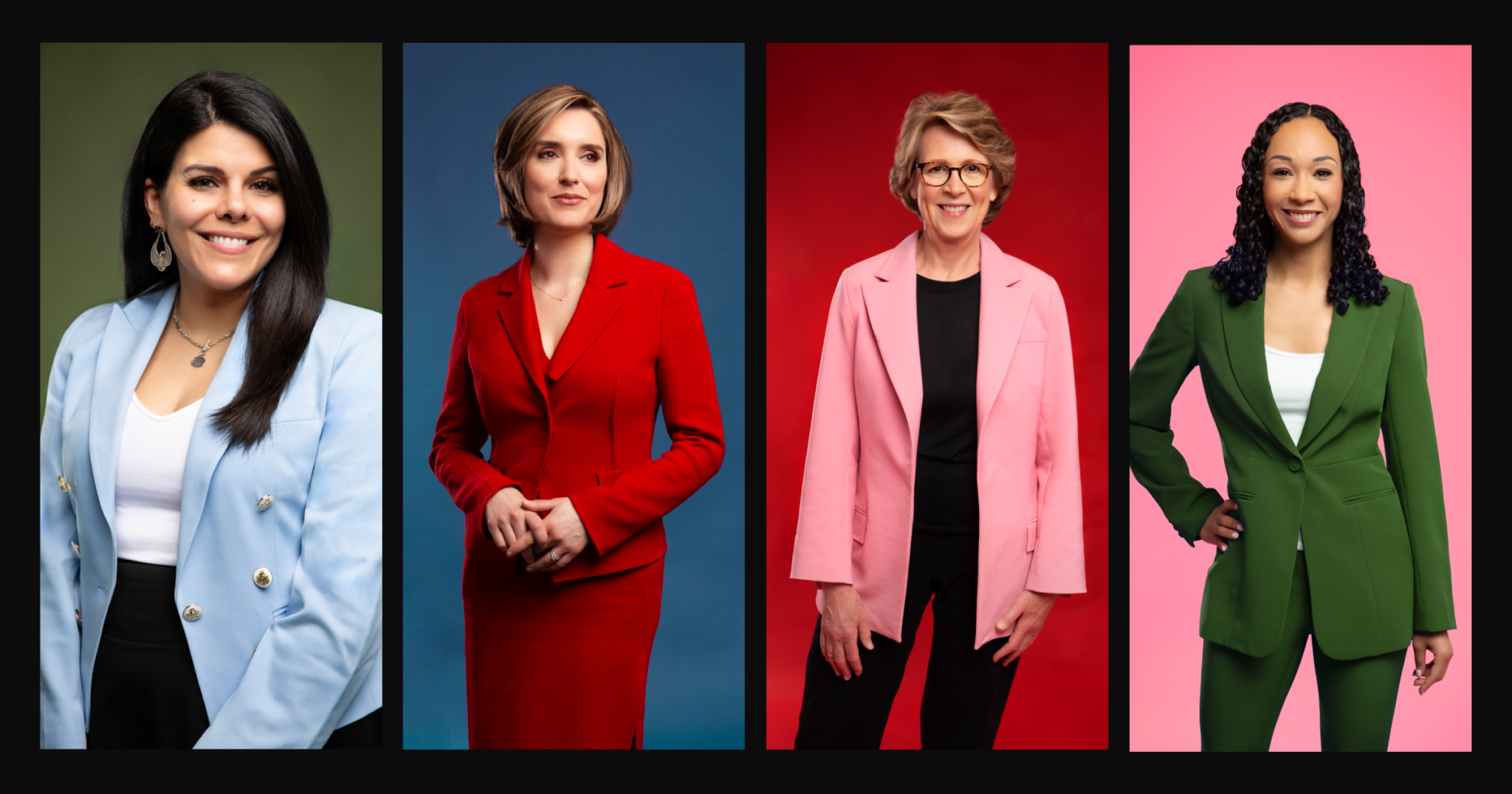Print Journalism
Vivian Salama
Wall Street Journal
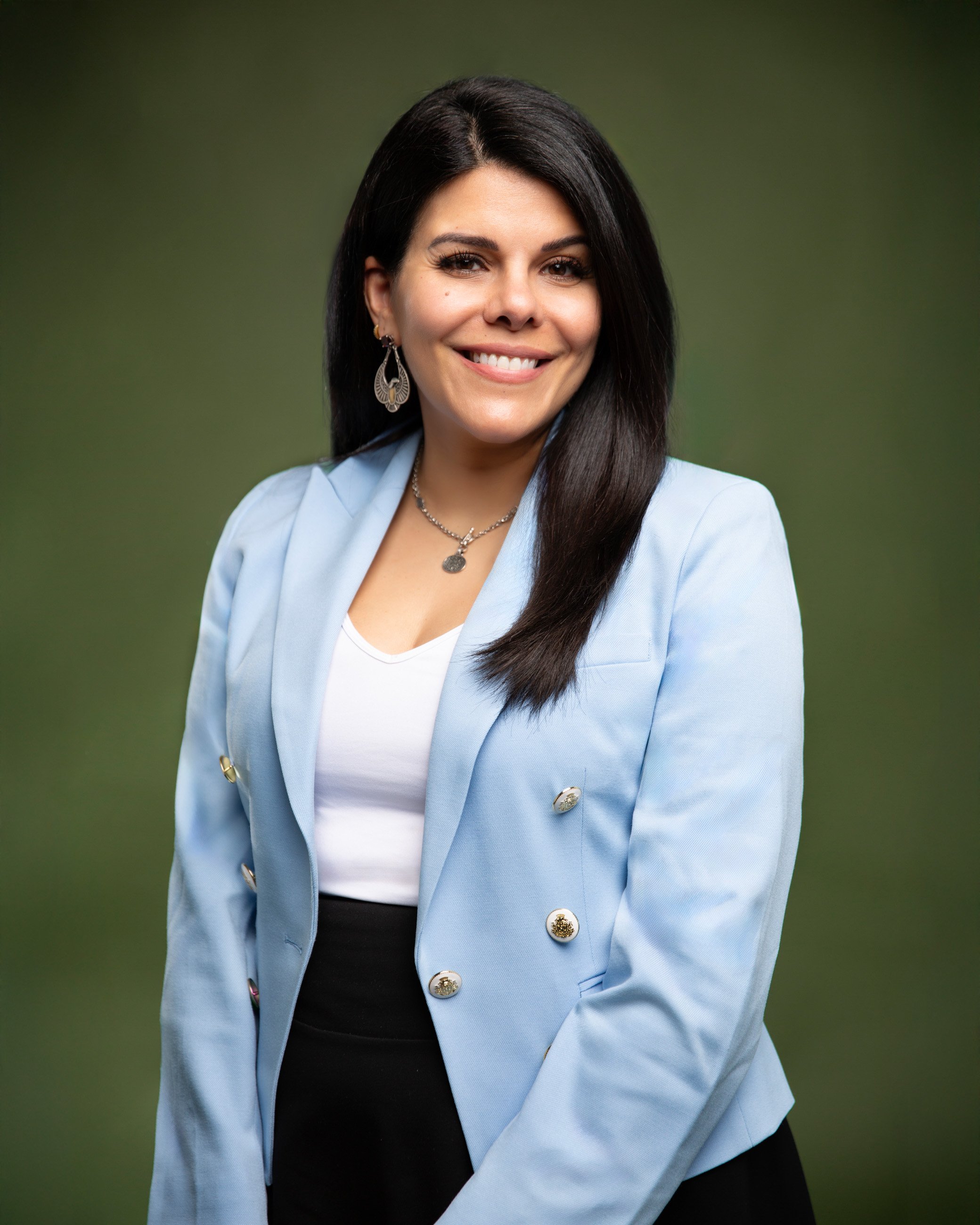
Vivian Salama’s two-decade career reporting on foreign policy and national security has taken her to more than 85 countries across five continents. Since relocating to Washington in 2016, she has unearthed major scoops for the Wall Street Journal, CNN, NBC News, and the Associated Press–from President Trump’s awkward first call with Mexico’s president in 2017 to his initial interest in buying Greenland. After a stint as a national-politics reporter, she’s returned to the White House beat to cover Trump’s second term.
Where she grew up: New York City suburbs.
How she got into journalism: “I was a biology major [at Rutgers University], but about halfway through, I took a communications class that leaned heavily into journalism. A light bulb went off and I realized this is exactly what I want to do. Then I did a series of internships at WNBC in New York, and I fell in love with broadcast journalism. Especially TV newsrooms and the cameras and the lights and the excitement and the action and the speed at which it happened.”
On her decision to attend law school: “I applied to [Georgetown’s evening program] in 2016. I never really intended to practice law. I just always believed that the disciplines of journalism and law are very similar in terms of the way you build a story or case. The writing styles are different, but the way you collect information to support your reporting is the same as gathering evidence to back up your case.”
How she’s navigated the transition between broadcast and print: “I have switched between broadcast and print my entire career, and it has shaped who I am as a journalist and how I view stories. As a print journalist, I consider myself very visual in the way that I want to tell stories and in the way that I ask for photos and videos to be paired with them. You can’t really specialize in one or the other, the way it was when I was getting into this business. Given the nature of the internet, melding print and broadcast together is just a daily occurrence.”
On managing the emotional challenges of covering war and political upheaval: “Like so many of my colleagues, I used to brush aside questions about my mental health and safety, because we really just wanted to get the stories. It’s very competitive, especially if you’re a freelancer. [At the Wall Street Journal] I have an entire news organization behind me, supporting me, helping to protect me, and giving me the logistical support that I need. In the early days of my career, I didn’t have that and we didn’t talk as much about mental health as we do now. You have to pace yourself and remember to take care of you along the way.”
Broadcast Journalism
Back to TopMargaret Brennan
CBS News
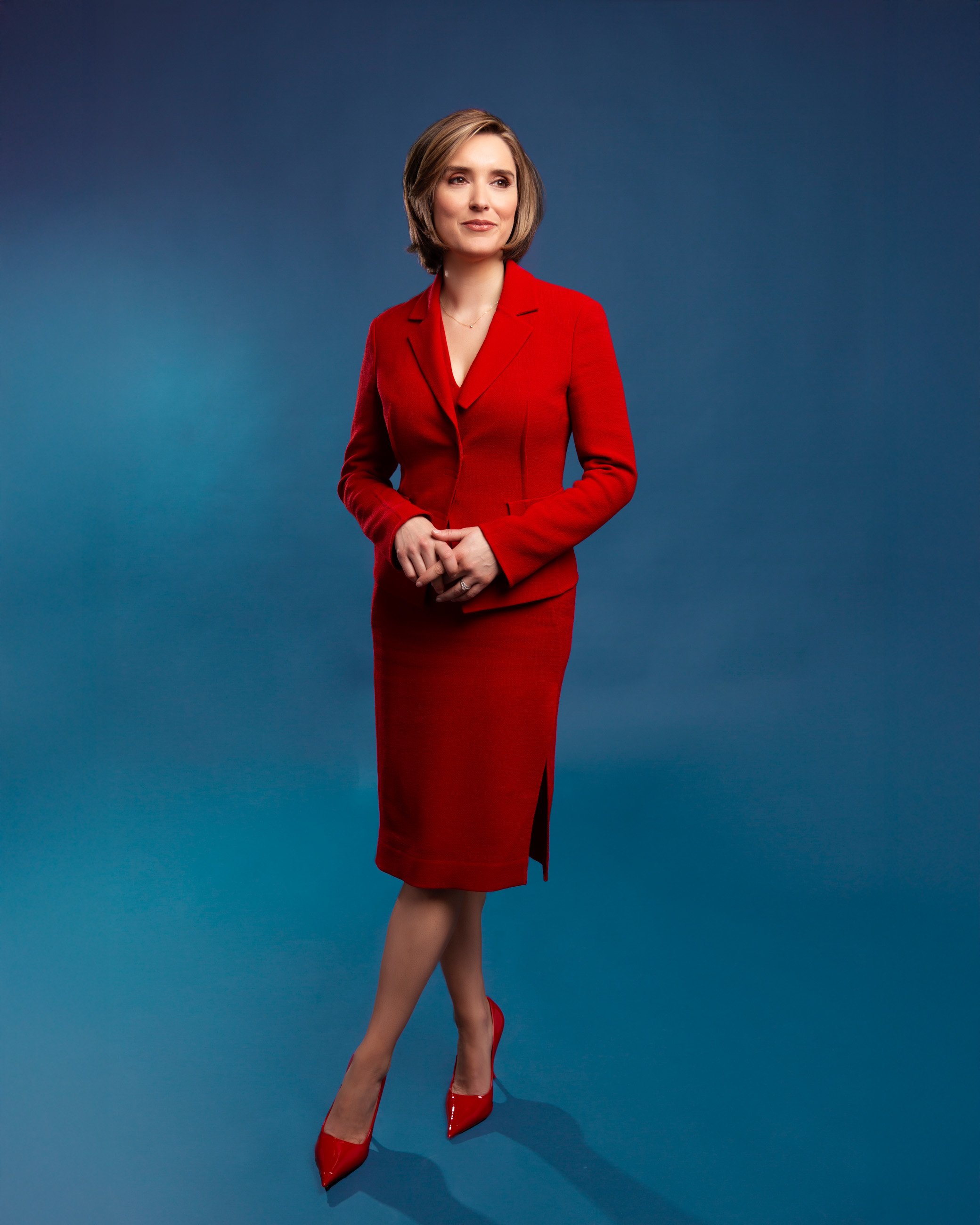
For the past seven years on Face the Nation, Margaret Brennan has spent Sunday mornings moderating conversations with America’s most consequential political players. Brennan, who has been with CBS since 2012, has won an Emmy for her coverage of the 2018 Parkland, Florida, school shooting; done extensive global reporting as the network’s chief foreign-affairs correspondent; and moderated the 2024 vice-presidential debate. This year, she landed the first post-inauguration interview with Vice President JD Vance.
Where she grew up: Danbury, Connecticut.
Her first onscreen gig: “My first on-air pieces had to do with philanthropic giving—this segment that aired at 5 am on Fridays on a financial-news program on CNBC. I was probably terrible, but it was good experience to start doing things in front of the camera.”
Most challenging part of her job: “I think a fully informed electorate is essential to a well-functioning democracy, so it hurts my heart when I hear people say they turn off the news because they can’t stand it—because they’re taking themselves out of participating fully in our democracy.”
How she handles criticism: “You try to have a tough skin and realize that some of this is just a tactic and it’s not personal. But this moment is unique, and it’s not just like, ‘I’m gonna go do yoga and take deep breaths and I’m gonna get through.’ I think we need to talk about it more. I think we need to acknowledge that this is not the kind of environment, information-wise, where you want to raise children.”
Work she’s proudest of: “I feel it’s a great accomplishment, in the news environment we’re in, when you can get someone to really listen to what you’re trying to say and understand and empathize and, even if they don’t agree with the speaker, just understand where they’re coming from. I think we did a great job at the vice-presidential debate because we were able to have a civil, contextualized conversation around a really heated and ugly political moment.”
Best part of her job: “This is really a platform where we strive to be as informed and responsible as we possibly can in this environment. Because that is so needed in this moment, it is a great privilege. But it’s a hard job.”
Star to Watch
Back to TopFrancesca Chambers
USA Today
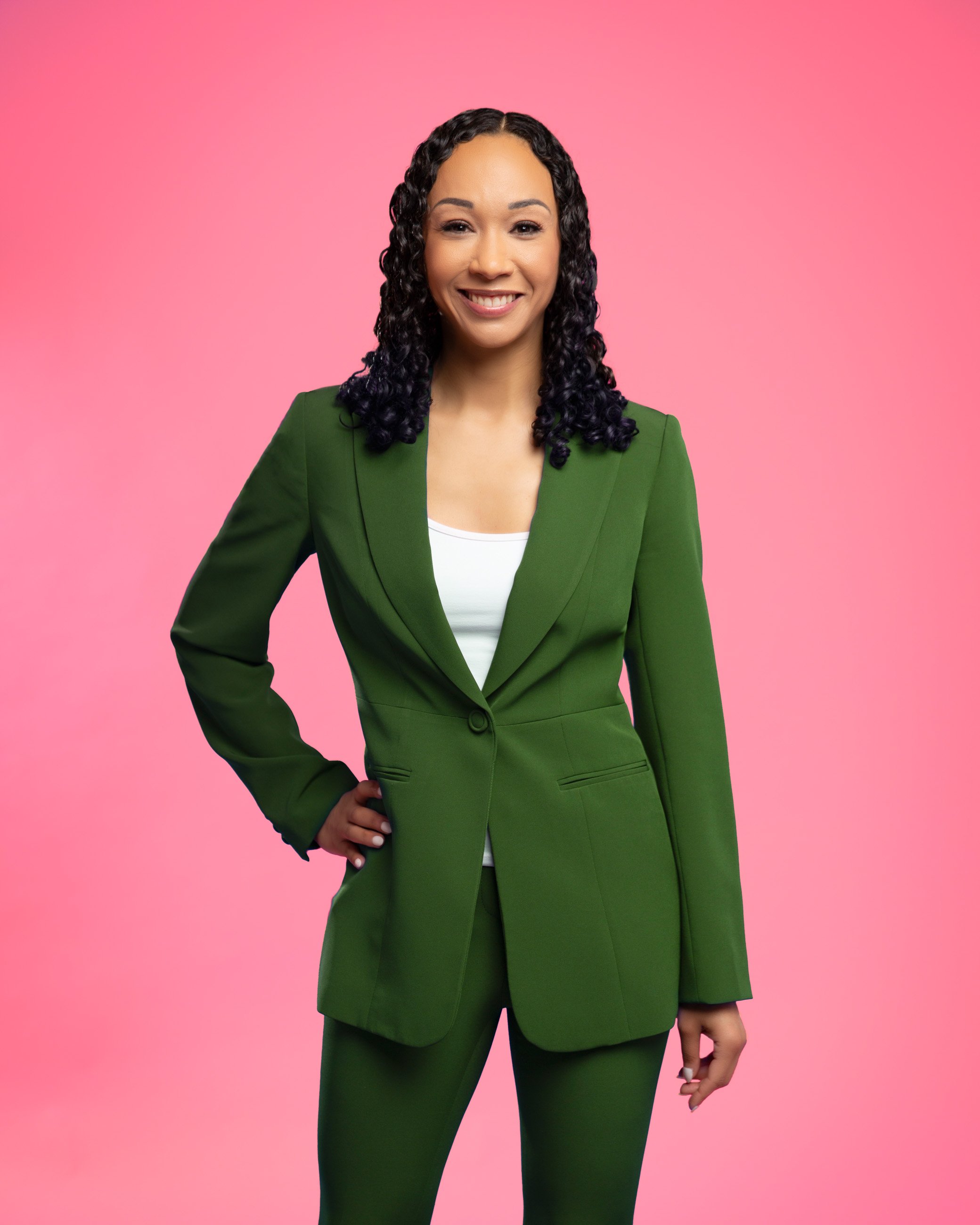
For more than a decade, Francesca Chambers has been reporting on the Oval Office and the race to occupy it. Since 2022, she’s been a White House correspondent at USA Today, where her work has focused on foreign policy, the 2024 election, and, lately, President Donald Trump’s transition. Before joining USA Today, Chambers covered the White House for McClatchy.
Where she grew up: Paola, Kansas.
What drew her to journalism: “When I was in middle school, I had a teacher who said that I was inquisitive and liked asking questions, and that maybe journalism was a career I should consider because I also liked to write. It really stuck with me.”
First journalism job: “Working as a web editor for the Washington Examiner, when it still had a newspaper printed every day. Now it’s a magazine, but it used to have a daily paper. There were a bunch of local newspapers, sadly, that don’t exist anymore in Washington.”
How she became a White House reporter: DailyMail.com “approached me when they were going to launch their DC-politics coverage. I was a young, hungry reporter who really, really wanted to cover the White House, but those jobs are so hard to get. So I asked them, ‘Is this something that you think would put me on that track?’ And because I was the first political reporter they were hiring, they essentially said, ‘You can cover whatever you want.’ ”
Most challenging part of covering the White House: “You have to be really agile. You have to be comfortable throwing out your entire plan for the day and focusing on breaking news, whatever that breaking news may be.”
How she stays sane: “I do yoga. Lots of yoga. I’m practicing every day right now.”
Work she’s proudest of: “My first trip abroad with a President was to Cuba with Barack Obama. This is my favorite part about the job: being able to be in the room where it happens, when the President is having conversations with world leaders that can change the trajectory of US history.”
Hall of Fame
Back to TopElisabeth Bumiller
New York Times
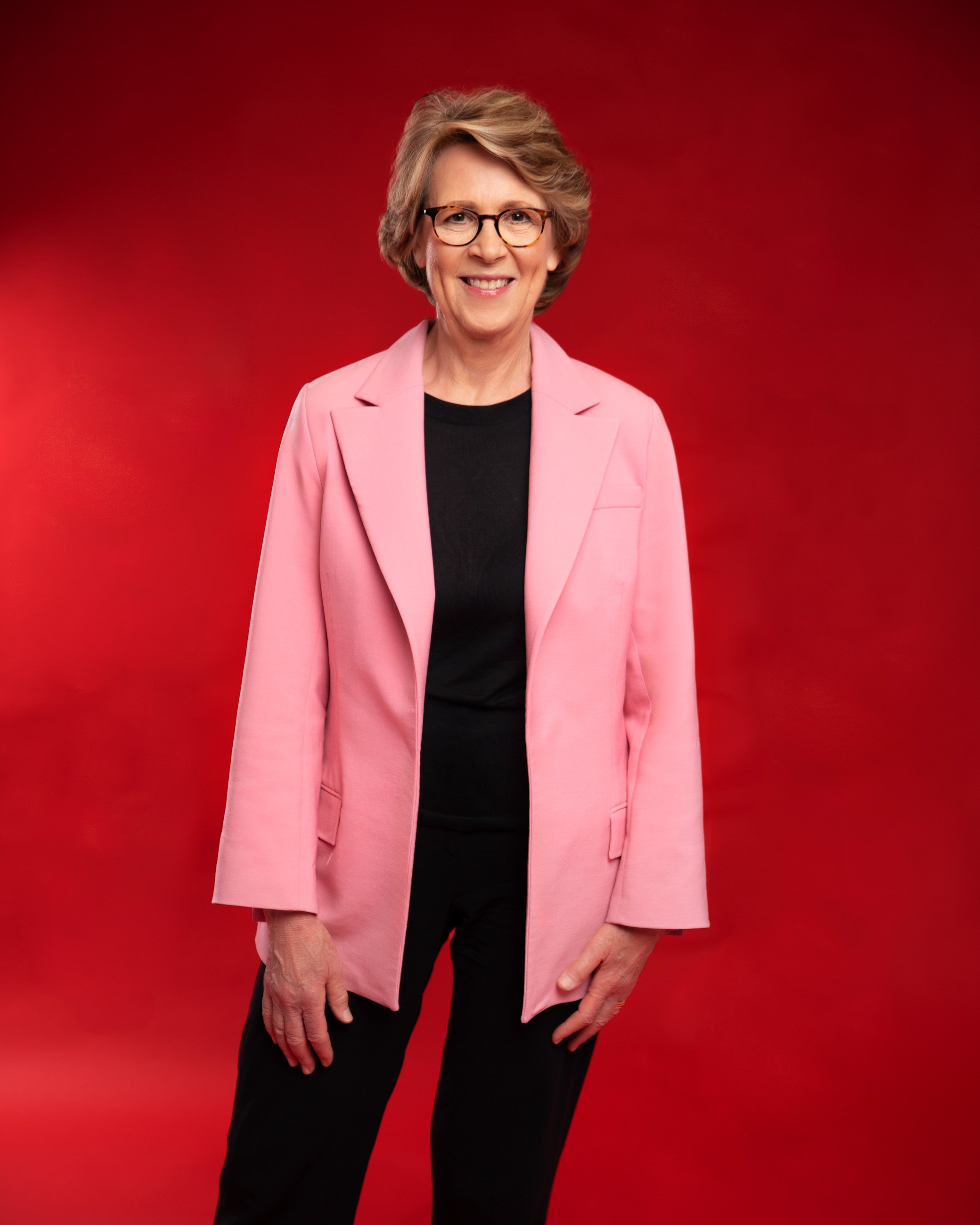
For almost a decade as the New York Times’ Washington bureau chief, Elisabeth Bumiller guided the paper’s coverage, much of it during the turbulent Trump and Biden presidencies, amid a global pandemic and widespread disinformation. Her nearly 30-year tenure at the paper has included stints as both a White House and Pentagon correspondent, and she recently returned to reporting as a writer-at-large focused on Trump’s second term. Before joining the Times, she reported for the Miami Herald and the Washington Post in locations ranging from DC to New Delhi.
Where she grew up: Born in Denmark but moved to Cincinnati at age three.
How she ended up in Washington: “I went to Columbia [University] for a year [after working at the Miami Herald]. As I was about to graduate, I got a note in my mailbox to call Sally Quinn. It turned out [the Washington Post was] looking for a party reporter, and they thought, ‘Let’s go find somebody young and ambitious and willing to do it, because nobody wanted to cover parties, really.’ My name was recommended because I had gone to the assistant dean to ask for money to throw a party at the beginning of the school year.”
Best journalism advice she ever received: “Reporting, reporting, reporting. It’s good to be able to write well, but reporting is what carries us. Never hesitate to make that last phone call, because the reporting is really what makes the stories.”
On covering the White House: “My first day as the New York Times White House correspondent was September 10, 2001, so I was not prepared for what happened on September 11, as none of us were. The White House beat is hard because you end up covering everything in Washington. Everything goes to the White House—national security, foreign policy, healthcare policy, congressional relations, the environment, economics, so it’s a huge beat to get your head around.”
Work she’s proudest of: “When I was on the Pentagon beat, I did a series of stories on 40 female Marines who were a part of a female engagement team. This is when it was an experiment the Marines were doing during the surge of American forces in Afghanistan. The idea was that these women would be able to go into villages where men couldn’t go and talk to women. I’d been covering policy in Washington about the war, but it was a privilege to be on the ground watching how this policy was being carried out.”
Back to Top
Past Winners
2024
Carol Leonnig
The Washington Post
Meridith McGraw
Politico
Rachel Scott
ABC
Kara Swisher
Vox media
2023
Jacqueline Alemany
The Washington Post
Gloria Borger
CNN
Asma Khalid
NPR
Kelly O’Donnell
NBC
2022
Kaitlan Collins
CNN
Kathleen Parker
THE Washington Post
Martha Raddatz
ABC
Ayesha Rascoe
NPR
2021
Yamiche Alcindor
PBS
Karen Attiah
The Washington Post
Susan Glasser
The New Yorker
Norah O’Donnell
CBS
2020
Molly Ball
Time
Rita Braver
CBS
Anna Palmer
Politico
Kristen Welker
NBC
2019
Andrea Mitchell
NBC
Ashley Parker
The Washington Post
Abby Phillip
CNN
Amanda Terkel
HuffPost
2018
Amanda Bennett
Voice of America
Audie Cornish
NPR
Lynn Sweet
The Chicago Sun-Times
Amy Walter
the Cook Political Report
2017
Mary Katharine Ham
CNN
Mary Louise Kelly
NPR
Jane Mayer
The New Yorker
Cokie Roberts
NPR/ABC/PBS
2016
Dana Bash
CNN
Kathryn Lopez
National Review
Susan Page
USA Today
Carolyn Ryan
The New York Times
Print Journalism
Back to TopVivian Salama
Wall Street Journal

Vivian Salama’s two-decade career reporting on foreign policy and national security has taken her to more than 85 countries across five continents. Since relocating to Washington in 2016, she has unearthed major scoops for the Wall Street Journal, CNN, NBC News, and the Associated Press–from President Trump’s awkward first call with Mexico’s president in 2017 to his initial interest in buying Greenland. After a stint as a national-politics reporter, she’s returned to the White House beat to cover Trump’s second term.
Where she grew up: New York City suburbs.
How she got into journalism: “I was a biology major [at Rutgers University], but about halfway through, I took a communications class that leaned heavily into journalism. A light bulb went off and I realized this is exactly what I want to do. Then I did a series of internships at WNBC in New York, and I fell in love with broadcast journalism. Especially TV newsrooms and the cameras and the lights and the excitement and the action and the speed at which it happened.”
On her decision to attend law school: “I applied to [Georgetown’s evening program] in 2016. I never really intended to practice law. I just always believed that the disciplines of journalism and law are very similar in terms of the way you build a story or case. The writing styles are different, but the way you collect information to support your reporting is the same as gathering evidence to back up your case.”
How she’s navigated the transition between broadcast and print: “I have switched between broadcast and print my entire career, and it has shaped who I am as a journalist and how I view stories. As a print journalist, I consider myself very visual in the way that I want to tell stories and in the way that I ask for photos and videos to be paired with them. You can’t really specialize in one or the other, the way it was when I was getting into this business. Given the nature of the internet, melding print and broadcast together is just a daily occurrence.”
On managing the emotional challenges of covering war and political upheaval: “Like so many of my colleagues, I used to brush aside questions about my mental health and safety, because we really just wanted to get the stories. It’s very competitive, especially if you’re a freelancer. [At the Wall Street Journal] I have an entire news organization behind me, supporting me, helping to protect me, and giving me the logistical support that I need. In the early days of my career, I didn’t have that and we didn’t talk as much about mental health as we do now. You have to pace yourself and remember to take care of you along the way.”
Broadcast Journalism
Back to TopMargaret Brennan
CBS News

For the past seven years on Face the Nation, Margaret Brennan has spent Sunday mornings moderating conversations with America’s most consequential political players. Brennan, who has been with CBS since 2012, has won an Emmy for her coverage of the 2018 Parkland, Florida, school shooting; done extensive global reporting as the network’s chief foreign-affairs correspondent; and moderated the 2024 vice-presidential debate. This year, she landed the first post-inauguration interview with Vice President JD Vance.
Where she grew up: Danbury, Connecticut.
Her first onscreen gig: “My first on-air pieces had to do with philanthropic giving—this segment that aired at 5 am on Fridays on a financial-news program on CNBC. I was probably terrible, but it was good experience to start doing things in front of the camera.”
Most challenging part of her job: “I think a fully informed electorate is essential to a well-functioning democracy, so it hurts my heart when I hear people say they turn off the news because they can’t stand it—because they’re taking themselves out of participating fully in our democracy.”
How she handles criticism: “You try to have a tough skin and realize that some of this is just a tactic and it’s not personal. But this moment is unique, and it’s not just like, ‘I’m gonna go do yoga and take deep breaths and I’m gonna get through.’ I think we need to talk about it more. I think we need to acknowledge that this is not the kind of environment, information-wise, where you want to raise children.”
Work she’s proudest of: “I feel it’s a great accomplishment, in the news environment we’re in, when you can get someone to really listen to what you’re trying to say and understand and empathize and, even if they don’t agree with the speaker, just understand where they’re coming from. I think we did a great job at the vice-presidential debate because we were able to have a civil, contextualized conversation around a really heated and ugly political moment.”
Best part of her job: “This is really a platform where we strive to be as informed and responsible as we possibly can in this environment. Because that is so needed in this moment, it is a great privilege. But it’s a hard job.”
Star to Watch
Back to TopFrancesca Chambers
USA Today

For more than a decade, Francesca Chambers has been reporting on the Oval Office and the race to occupy it. Since 2022, she’s been a White House correspondent at USA Today, where her work has focused on foreign policy, the 2024 election, and, lately, President Donald Trump’s transition. Before joining USA Today, Chambers covered the White House for McClatchy.
Where she grew up: Paola, Kansas.
What drew her to journalism: “When I was in middle school, I had a teacher who said that I was inquisitive and liked asking questions, and that maybe journalism was a career I should consider because I also liked to write. It really stuck with me.”
First journalism job: “Working as a web editor for the Washington Examiner, when it still had a newspaper printed every day. Now it’s a magazine, but it used to have a daily paper. There were a bunch of local newspapers, sadly, that don’t exist anymore in Washington.”
How she became a White House reporter: DailyMail.com “approached me when they were going to launch their DC-politics coverage. I was a young, hungry reporter who really, really wanted to cover the White House, but those jobs are so hard to get. So I asked them, ‘Is this something that you think would put me on that track?’ And because I was the first political reporter they were hiring, they essentially said, ‘You can cover whatever you want.’ ”
Most challenging part of covering the White House: “You have to be really agile. You have to be comfortable throwing out your entire plan for the day and focusing on breaking news, whatever that breaking news may be.”
How she stays sane: “I do yoga. Lots of yoga. I’m practicing every day right now.”
Work she’s proudest of: “My first trip abroad with a President was to Cuba with Barack Obama. This is my favorite part about the job: being able to be in the room where it happens, when the President is having conversations with world leaders that can change the trajectory of US history.”
Hall of Fame
Back to TopElisabeth Bumiller
New York Times

For almost a decade as the New York Times’ Washington bureau chief, Elisabeth Bumiller guided the paper’s coverage, much of it during the turbulent Trump and Biden presidencies, amid a global pandemic and widespread disinformation. Her nearly 30-year tenure at the paper has included stints as both a White House and Pentagon correspondent, and she recently returned to reporting as a writer-at-large focused on Trump’s second term. Before joining the Times, she reported for the Miami Herald and the Washington Post in locations ranging from DC to New Delhi.
Where she grew up: Born in Denmark but moved to Cincinnati at age three.
How she ended up in Washington: “I went to Columbia [University] for a year [after working at the Miami Herald]. As I was about to graduate, I got a note in my mailbox to call Sally Quinn. It turned out [the Washington Post was] looking for a party reporter, and they thought, ‘Let’s go find somebody young and ambitious and willing to do it, because nobody wanted to cover parties, really.’ My name was recommended because I had gone to the assistant dean to ask for money to throw a party at the beginning of the school year.”
Best journalism advice she ever received: “Reporting, reporting, reporting. It’s good to be able to write well, but reporting is what carries us. Never hesitate to make that last phone call, because the reporting is really what makes the stories.”
On covering the White House: “My first day as the New York Times White House correspondent was September 10, 2001, so I was not prepared for what happened on September 11, as none of us were. The White House beat is hard because you end up covering everything in Washington. Everything goes to the White House—national security, foreign policy, healthcare policy, congressional relations, the environment, economics, so it’s a huge beat to get your head around.”
Work she’s proudest of: “When I was on the Pentagon beat, I did a series of stories on 40 female Marines who were a part of a female engagement team. This is when it was an experiment the Marines were doing during the surge of American forces in Afghanistan. The idea was that these women would be able to go into villages where men couldn’t go and talk to women. I’d been covering policy in Washington about the war, but it was a privilege to be on the ground watching how this policy was being carried out.”
Back to Top
Past Winners
2024
Carol Leonnig
The Washington Post
Meridith McGraw
Politico
Rachel Scott
ABC
Kara Swisher
Vox media
2023
Jacqueline Alemany
The Washington Post
Gloria Borger
CNN
Asma Khalid
NPR
Kelly O’Donnell
NBC
2022
Kaitlan Collins
CNN
Kathleen Parker
THE Washington Post
Martha Raddatz
ABC
Ayesha Rascoe
NPR
2021
Yamiche Alcindor
PBS
Karen Attiah
The Washington Post
Susan Glasser
The New Yorker
Norah O’Donnell
CBS
2020
Molly Ball
Time
Rita Braver
CBS
Anna Palmer
Politico
Kristen Welker
NBC
2019
Andrea Mitchell
NBC
Ashley Parker
The Washington Post
Abby Phillip
CNN
Amanda Terkel
HuffPost
2018
Amanda Bennett
Voice of America
Audie Cornish
NPR
Lynn Sweet
The Chicago Sun-Times
Amy Walter
the Cook Political Report
2017
Mary Katharine Ham
CNN
Mary Louise Kelly
NPR
Jane Mayer
The New Yorker
Cokie Roberts
NPR/ABC/PBS
2016
Dana Bash
CNN
Kathryn Lopez
National Review
Susan Page
USA Today
Carolyn Ryan
The New York Times
This article appears in the May 2025 issue of Washingtonian.
